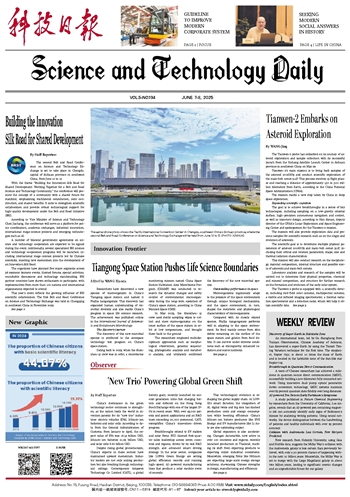
Discovery of Super-Earth in Habitable Zone
An international team, led by Gu Shenghong from Yunnan Observatories, Chinese Academy of Sciences, has discovered a super-Earth by using the Transit Timing Variation technique for the first time. The exoplanet, Kepler 725c, is about 10 times the mass of Earth and is located in the habitable zone of the Sun-like star Kepler-725.
Breakthrough in Quantum Direct Communication
A team of Chinese researchers has achieved a milestone in quantum secure direct communication (QSDC), successfully building a 300-kilometer fully connected network. Using innovative dual-pump optical parametric down-conversion technology, QSDC systems maintain over 85 percent quantum state fidelity over long distances.
AI-powered Pen Detects Early Parkinson's Symptoms
A study published in Nature Chemical Engineering by researchers from the University of California, Los Angeles, reveals that an AI-powered pen containing magnetic ink can accurately identify early signs of Parkinson's disease by analyzing writing patterns. Using neural networks, the device distinguishes between the handwriting of patients and healthy individuals with over 95 percent accuracy.
Collision with Andromeda Less Certain, New Mergers Predicted
New research from Helsinki University, using Gaia and Hubble data, suggests the Milky Way's collision with the Andromeda galaxy is less certain than previously believed, with only a 50 percent chance of happening within the next 10 billion years. Meanwhile, the Milky Way is set to merge with the Large Magellanic galaxy in about two billion years, leading to significant cosmic changes and an unpredictable future for our galaxy.

 Next
Next




